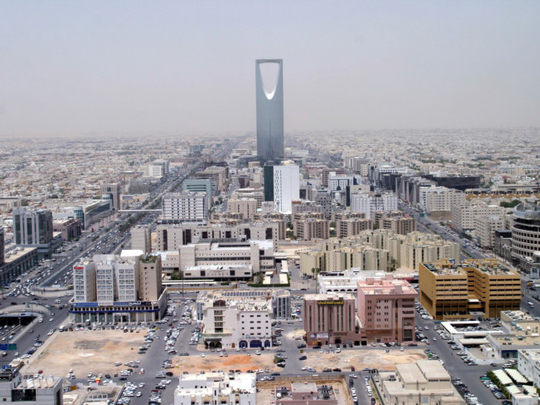
Sooner or later, we will all need some help getting around. As our bodies age, the spring in our step fades ever so slowly and then some of us will come to a walking cane or a wheelchair. Such is the unescapable passage of life and time.
In 2014, the fourth International Conference on Disability & Rehabilitation (ICDR-2014) was held in Saudi Arabia in which it was stated that Saudi Arabia was the first country to ratify the Convention on the Rights of People with Special Needs, in keeping with the United Nations Convention. It also added that Saudi Arabia respected the dignity and independence of the disabled and was the first to uphold their rights in society.
Disability, as defined by the UN Convention, applied to individuals who have long-term physical, mental, intellectual or sensory impairments, which may hinder their full and effective participation in society on an equal basis with others. Essentially, it applies to most if not all the elderly.
During the event, a number of people presented papers, some specific to the status of the disabled in Saudi Arabia. The president of the Human Rights Commission stated that there was a global “qualitative change in vision regarding the disabled — from negligence, marginalisation and compassionate philanthropy to comprehensive development of human rights”. It was accepted at the forum that this change in attitude towards disability results from the interaction of the disabled person with his environment, which often hinders him or her from accessing basic rights and full participation in public life on an equal footing with others, and concluded that all “issues relevant to disability should prioritise development plans accordingly.
Notwithstanding the fact that the kingdom was the first to endorse the Convention on the Rights of Persons with Disabilities and its Optional Protocol in 2008, with the aim of developing relevant disability regulations and promoting international cooperation in disability legislation, somehow, I feel we may have missed the bus.
Much of the disability bestowed upon people is a result of the disabled interacting with the surrounding environment, which is reluctant to accept them as normal people. This impedes their effective participation and access to equal treatment. Added discrimination of the disabled infringes upon their right to human dignity.
It has been more than three years since that convention. Most of us know someone who suffers from some form of disability, be it physical or mental. And if most people are like me, then they would also notice the lack of appropriate facilities for the physically or mentally impaired.
If you talk about difficulties facing the disabled then look around and add up all the wheelchair ramps you notice in public service organisations and schools. Then add up all the parking areas reserved for the physically handicapped. Add to that the number of centres you know that help the physically impaired cope with the challenges of everyday living. If the total exceeds the ten fingers on your hands, then you are seeing something I’m not.
According to the 2014 Convention, ‘persons with disabilities should be able to live independently and participate fully in all aspects of life’. But as things stand today, can they really? Show me a paved and unobstructed sidewalk on which they can move about on their wheelchairs or with the help of a walking stick. Show me properly designed and marked pedestrian crossings for the weak and the elderly. Show me appropriate toilets or rest-room facilities.
I have seen new buildings and offices in the public services sector come up this year with scarcely a thought for the needs of the physically challenged. Who allowed builders and contractors to get away with this oversight is beyond me. As for those who are mentally impaired, their inconveniences would fill another column. Why is it that we cannot apply what we agree to in principle at international forums?
To this end, the agencies concerned should take appropriate measures to ensure that persons with disabilities have access to the physical environment, to transportation, to information and communications technology, and to other facilities and services that are open to the public. Is that happening countrywide? I am not so sure.
There are many conditions in the said Convention that are unfortunately not being applied for the welfare of residents with special needs. Just heralding a convention with much fanfare or putting pen to paper does not provide the necessary tools that are needed so desperately. It takes more than a signature on a convention resolution to ensure the welfare of people with special needs.
And lest it be forgotten, old age will escape none who live that long.
Tariq A. Al Maeena is a Saudi socio-political commentator. He lives in Jeddah. You can follow him on Twitter @talmaeena.









